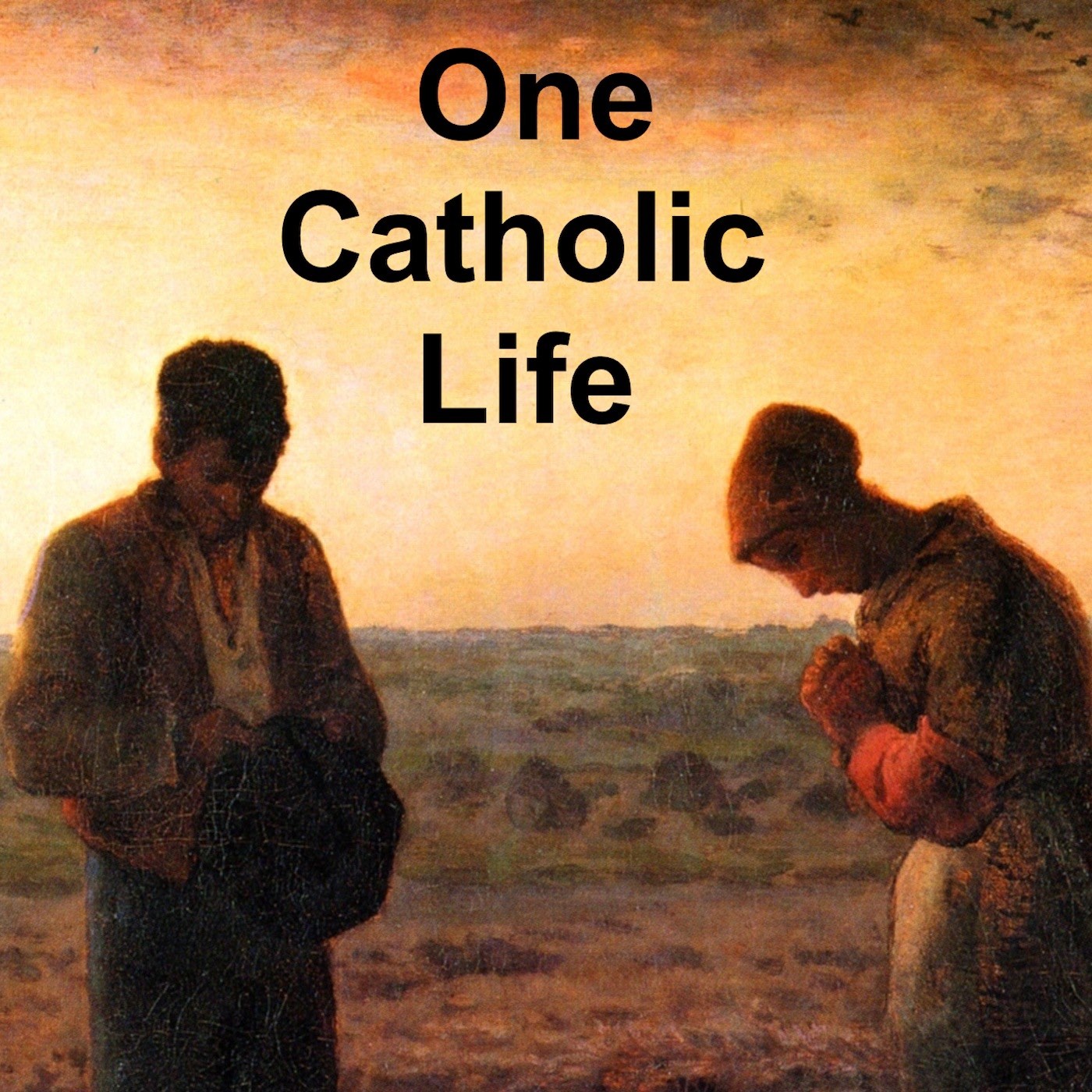Liminal Spaces – Homily for the 21st Sunday in Ordinary Time
Description
This past week on Facebook
a former student posted a picture of herself with her husband.
They’ve been married almost two years,
and they were standing with their arms around each other
next to the “Sold” sign in front of their very first house.
She’s about five months pregnant
as they get ready to welcome their first child this coming December.
I imagine there are lots of families
moving into new homes this summer,
getting used to new cities, new neighborhoods,
children about to start the year in a new school.
Some of you are taking your children to college,
maybe for the first time living away from home.
Summer is a season of movement.
Each of those moves is an ending and a new beginning,
with overlap between them.
Anthropologist Victor Turner calls these moments “liminal spaces.”
Liminal spaces are the in-between places of our lives,
neither here nor there,
“betwixt and between”
as someone recently described them to me.
We all experience liminal spaces throughout life,
times when we are in transition, on the threshold:
That first week in the new house,
surrounded by boxes and empty cupboards,
wondering who the neighbors are,
or how to get to the grocery store.
You’re not in the old house any more,
but not yet fully in the new house either.
Or beginning life as newlyweds,
not single anymore,
and yet not quite a couple.
There are those times we wait for the results of medical tests,
unsure of how our lives might suddenly be turned upside down.
Summer is a liminal space for students,
where they are no longer fourth graders, but not yet fifth graders,
no longer sophomores, but not yet upperclassmen,
no longer in high school, but not yet college students.
Some are transitioning into retirement.
Maybe some are in the middle of a breakup,
or in between jobs.
There are those who are grieving the loss of a pet,
a friend, or a loved one.
The smoke in the air reminds us of all those
who have lost homes and possessions in the forest fires,
and who are unsure what will happen next.
These are the liminal spaces of our lives.
This is where the Israelites are in today’s first reading;
this is where the disciples are in the gospel.
We see both groups on the threshold, on the verge.
At the end of the book of Joshua,
the Israelites have entered the Promised Land.
This is a key moment in Salvation History.
God had sent Moses to lead them
from slavery in Egypt into the desert
where they have wandered for decades.
But Moses has died and Joshua has led the Israelites in battle
against the Amorites, the Moabites, Canaanites,
until all opposition has ceased.
Now a long period of uncertain wanderings through the desert
is ending;
a new era is beginning.
God’s chosen people are about to settle in a land
filled with people who have worshipped other gods.
It is a new place, a strange place in many ways.
The Israelites are no longer a wandering people,
but not yet a settled community.
They are in a liminal space.
And in the gospel we have read for the past six weeks
the disciples have heard Jesus speak of himself
as the bread of life;
that his flesh is true food
and his blood is true drink.
This new teaching challenges the beliefs of the disciples.
More Episodes
We are given very powerful readings today,
powerful individually and powerful collectively.
And at the heart of them all is a line by St. Paul
in his letter to the Romans:
“…be transformed by the renewal of your mind,
that you may discern what is the will of God,
what is good and pleasing...
Published 09/04/23
Published 09/04/23
It’s a sad fact of history
that the largest religious community
that ever lived together in the same place
in the history of the Catholic Church
was at the Dachau concentration camp in Germany during World War II.
Over 2,500 Catholic priests became prisoners in Dachau,
in Cellblock 26,...
Published 02/13/23


